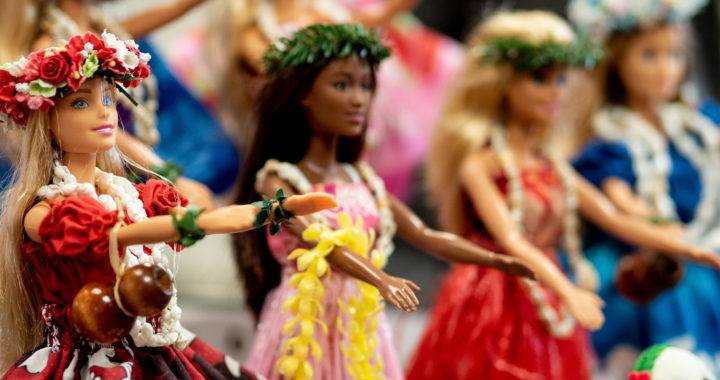Barbie is often associated with play and fashion. It is one of the most iconic cultural exports of the United States. Furthermore, throughout the decades, it has evolved from a brand of fashion dolls to a symbol of modern feminism that empowers young girls to aspire and believe in the power of their dreams and imaginations. Feminist ideologies are at the core of the marketing strategy for Barbie. Mattel, the multinational toy manufacturer and entertainment company behind the brand, has built the specific product strategy, branding, value proposition, and other promotional activities for Barbie around women empowerment.
The Feminist Evolution of Barbie: Understanding How Barbie Promotes Feminist Ideologies in Its Marketing Strategy
It is important to underscore the fact that the public reception toward Barbie is not always favorable. Critics have argued that the brand has reinforced gender stereotypes and promoted unrealistic standards of beauty among its target market.
The term “Barbie syndrome” has even emerged to depict the desire of some women to have a physical appearance or lifestyle representative of the Barbie doll. Some extreme manifestations of this syndrome have been regarded as a form of body dysmorphic disorder.
Nevertheless, to improve its image and reputation, as well as to address criticisms, Mattel has been revisiting and revising its marketing strategy over the decades. It has now come up with a coherent branding for producing and promoting Barbie dolls and related products.
1. Branding and Marketing Messaging
In 2015, with the help of an ad agency based in San Francisco, Mattel launched the “You Can Be Anything” slogan as part of the “Imagine the Possibilities” ad campaign for Barbie. It has since become the main slogan of the brand. The idea behind the statement is to entice girls to dream and believe in the power of their imaginations.
One of the first ads that emerged from the campaign began with the question, “What happens when girls are free to imagine they can be anything?” It specifically featured girls fitting into the shoes of adults and transforming into professors, museum tour guides, soccer coaches, and business executives. Another ad presented girls choosing their ideal careers and documenting how they spent living their dream professions for a day.
The slogan also represents the value proposition of the brand and its main marketing message. It marked a departure from traditional gender stereotypes to embrace progressive narratives. Promotional activities for Barbie now emphasize empowering messages that encourage girls to dream big, challenge norms, and pursue their ambitions fearlessly.
2. Inclusive Product Strategy
The same slogan also guides the product strategy for Barbie. Take note that toys can encourage imaginative play and role-playing activities. Hence, in consideration of the value proposition of the brand and to reinforce its marketing messages, Mattel has been producing different variations of its fashion doll that reflect diverse interests and different careers.
Furthermore, in recent years, the brand has expanded its range of dolls to include various body types, skin tones, eye colors, and hair textures. Take note that Mattel has been introducing dolls that are representative of different ethnicities since the 1960s and 1980s, but it was only in 2009 when it first launched the Barbie Fashionistas line to celebrate diversity and inclusion by offering a variety of choices and possibilities for girls.
The Fashionistas line features dolls not only with different physical appearances and ethnicities but also with various abilities and disabilities. In addition, aside from this line, the brand has released dolls that represent real-world women as an homage to notable women in various fields. These include Amelia Earhart, Frida Kahlo, and Katherine Johnson.
3. Corporate Social Responsibility
Another way Barbie promotes feminism and fosters women empowerment is through the corporate social responsibility initiatives of Mattel. The Barbie Dream Gap Project is a global initiative that aims to close the gender gap in STEM education by providing funding to nonprofit organizations involved in increasing the participation of young girls in STEM fields.
It is important to note that CSR activities can be part of a specific public relations strategy or an overall promotion strategy. Relevant programs or initiatives built around certain advocacies help companies or brands improve their image. Hence, in the case of Barbie, its CSR activities have helped in supporting and promoting further its branding and marketing messages built on the core of women empowerment and other feminist ideologies.
The brand also leverages its influence and platform to raise awareness about important social issues and amplify its feminist causes further. It has collaborated with prominent thought leaders, advocates, and other organizations to drive conversations about breaking barriers, shattering glass ceilings, and promoting a more inclusive world.
Key Takeaways and Conclusion: Barbie Empowers Feminism Through Play and Representation
Nevertheless, based on the aforementioned, Barbie is more than a mere brand of fashion dolls. It has positioned itself as a cultural icon that drives feminist ideals.
The brand specifically promotes feminism by leveraging its branding and marketing messaging to empower girls, adopting an inclusive product strategy that celebrates diversity, and engaging in meaningful corporate social responsibility initiatives.
Barbie sets a powerful example of how a brand intended for children can actively promote feminism and contribute to positive societal change.
Hence, with the emergence of progressive ideologies and changing societal values and norms, the brand has continued to evolve. It has proven that it is much more than a plaything but rather a catalyst for shaping a more equitable and empowered future for generations to come.
